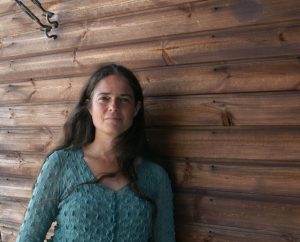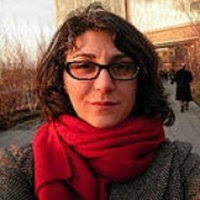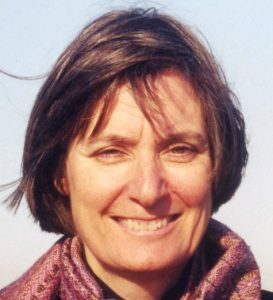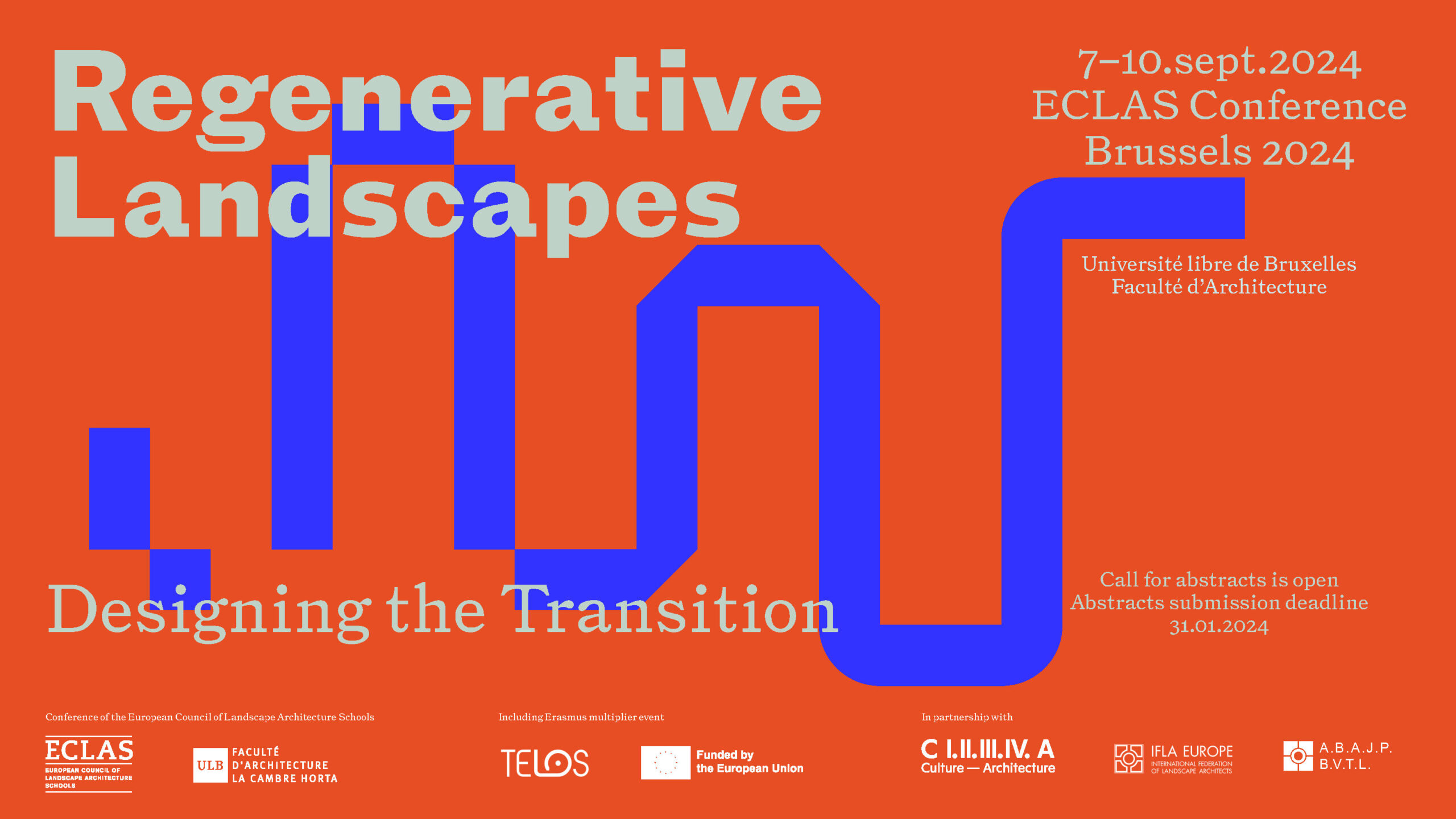Keynote Speakers
Ellen Fetzer holds a diploma and a doctoral degree in landscape planning from Kassel University, Germany. Since 2001 she has been working at the school for landscape architecture, environmental and urban planning in Nürtigen (Stuttgart area, Germany). She is coordinating an international master degree in landscape architecture (IMLA). The second focus of her work is in the Centre for University Didactics. Ellen works a great deal in the field of computer-supported collaborative learning and facilitates online seminars in international cooperations on topical issues such as social entrepreneurship and democracy education. She is president of ECLAS, the European Council of Landscape Architecture Schools.

Ellen will talk about:
Landscape education: Our path towards responsible citizenship
“Education has a vital role to play in developing the knowledge, skills, attitudes and values that enable people to contribute to and benefit from an inclusive and sustainable future. Learning to form clear and purposeful goals, work with others with different perspectives, find untapped opportunities and identify multiple solutions to big problems will be essential in the coming years. Education needs to aim to do more than prepare young people for the world of work; it needs to equip students with the skills they need to become active, responsible and engaged citizens.” (OECD, 2018: The Future of Education and Skills – Education 2030).
In its 2018 report on the future of education and skills the Organisation for Economic Co-operation and Development (OECD) calls for urgent changes in teaching and learning. Our environment, society and economy are facing complex transformations with unpredictable futures. Every educational institution, including landscape architecture departments, needs to prepare their students for a future of uncertainty. ‘Transformative competences’ are key in order create new value for others, for reconciling tensions and dilemmas and for taking responsibility. Transformative competence is composed of systems-thinking, anticipatory competence, normative competence and strategic competence. All of these are based on interpersonal competence, which is a precondition for joint action (Scheidewind et al, 2016). Landscape and landscape architecture education provide an ideal context for developing such competences. It is in our landscapes where the global sustainability challenges become tangible and alternative futures emerge. However, today, almost 20 years after the first publication of the European Landscape Convention, weak public and political awareness of the relevance of landscape and landscape architecture education is still the norm in many places, in Europe and worldwide. During my talk, I will call for more self-confidence among landscape educators to promote the value of their work in the light of the current future skills debate and the global OECD movement for transformative education. Nevertheless, I will also remind about an ongoing need for curricular development. Integrating future skills and transformative competence into landscape architecture curricula is our common challenge. I hope that this and future ECLAS conferences become the place for debating, co-designing and learning from each other in order to give landscape education eventually the attention it deserves. Landscape and landscape architecture has the potential for becoming a role model across disciplines and domains.
OECD (2018): The Future of Education and Skills – Education 2030, Position Paper, https://www.oecd.org/education/2030/E2030%20Position%20Paper%20(05.04.2018).pdf (last accessed 24.03.2019)
Uwe Schneidewind, Mandy Singer-Brodowski, Karoline Augenstein, Franziska Stelzer (2016): Pledge for a Transformative Science: A Conceptual Framework, Wuppertal Paper Nr. 191 , https://wupperinst.org/a/wi/a/s/ad/3554 (last accessed 24.03.2019)
Burcu Yigit Turan is associate senior lecturer in the subject area of “planning in cultural environments” at the Swedish University of Agricultural Sciences, Department of Urban and Rural Development, Division of Landscape architecture, in Uppsala. She obtained her Ph.D. degree in 2010 from Vienna University of Technology, defending her dissertation titled ‘Complexity of Meanings in Urban Landscapes: Between the Imagined and the Real’. Burcu practiced, studied and taught landscape architecture and urban planning and design in different geographies such as Turkey, the Netherlands, Austria, the United States and Sweden. Her current work has revolved around the issues of social justice, migration, urbanisation, and ethics and politics in landscape architecture.

Burcu will talk about:
Questions for landscape architecture education in an age of increasing inequalities and polarisation
Social inequalities, fragmentation, polarization and hate speech: they have represented a growing dominant social and sentimental state all over the world now. Semiotic games have been bombarded into our lives through different media. They have been shaping our understanding about events disassembling the causality chains behind the facts and pointing singular elements as scapegoats, rather than structural issues. Borders are being constructed every day to exclude some bodies from somethings. They produce and reproduce inequalities. They are both material and immaterial; they are visible and invisible; they exist in our minds, in between us, and outside of us. They can exclude some bodies; they can paralyze minds not to understand, eyes not to see, and hearts not to feel the pain of those who are excluded. They are smart: they evolve not to be recognized. They are materially and symbolically constructed in landscape by others and by us, consequently by us landscape architects. We produce and reproduce them.
Today, we hear voices in landscape architecture calling for social equity, democracy and justice. Policy texts emphasize social justice and sustainability as the goal for envisions for future. Projects represent themselves with concepts such as social justice, sustainability, participation, inclusion and democracy. We want to see a just, socially and environmentally sustainable world. How much do we do? What is the gap between intention and action? What are the elements of this gap?
Are we able to see the borders that create and exacerbate inequalities? Are we able to help others to see them? Are we able to stand against them for justice? Can we imagine and create landscapes that can bring down walls? What kind of education in landscape architecture do we need to help our students gain those abilities? What are the challenges?
With this talk, I will elaborate on the above questions and propose some thinking axes to open a dialogue in our community and to discuss the challenges and possibilities to move beyond borders in our pedagogical practices.
Anne Whiston Spirn

Anne Whiston Spirn, the Cecil and Ida Green Professor of Landscape Architecture and Planning at MIT, is an award-winning author, scholar, photographer, teacher, and practitioner. Her books include The Granite Garden (1984), The Language of Landscape (1998), Daring to Look (2008), and The Eye is a Door (2014). Since 1987, she has directed the West Philadelphia Landscape Project, an action research program integrating research, teaching and community service. Spirn is the recipient of Japan’s 2001 International Cosmos Prize for “contributions to the harmonious coexistence of nature and mankind,” IFLA’s Geoffrey Jellicoe Award, and the 2018 National Design Award.
Anne’s talk:
When Learning Is Real
For forty years, Anne Whiston Spirn has integrated action research and teaching to address intractable environmental and social challenges, to advance knowledge, and to expand the scope of professional practice. Spirn will reflect on that experience, on successes and failures and lessons learned.
